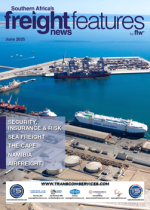Delays and longer lead times are part of the price that has to be paid for increased cargo security measures in light of global conf licts and the increased risk of terrorist attacks.Around 35% of global airfreight is monitored through Pre-Loading Advance Cargo Information (PLACI) regimes.These require comprehensive details of shippers and consignees and specify that cargo must originate from shippers who have recognised business relationships with freight forwarders or carriers.PLACI regulations are applicable in the United States, Europe, United Kingdom, United Arab Emirates and Canada, according to the International Air Transport Association (Iata).Freight forwarders, air carriers, postal operators or other relevant entities submit a specific set of data, known as the 7+1 data set, to regulators as early as possible before the cargo is loaded onto the aircraft at the last point of departure. The PLACI data is used to assess the potential aviation security risk posed by the consignment.It is not a standalone security method but rather an additional component of a multi-layered approach to aviation security, according to the World Customs Organization. In South Africa, much of the onus falls on the airfreight agents in terms of Part 108 of the Civil Aviation Regulations, which were implemented on July 1, 2009.Air carriers may accept only “known cargo,” which is aconsignment to which the security controls prescribed by Part 108 have been applied.In essence, cargo may only be accepted from a licensed agent who has applied the appropriate security controls and hands the freight over as “ k now n c a rgo”.All agents must be accredited by the Commissioner of Civil Aviation.Employees physically handling air cargo are required to hold a personal certificate of proficiency relevant to the type of work they perform.Agents must have a confidential air cargo security programme approved by the Commissioner in place for the acceptance or storage or forwarding, or handling of cargo intended for carriage by air. They also need a security manual detailing the implementation of the programme, and a designated official responsible for the implementation, application and supervision of the required security controls.Additional requirements may be enforced by the destination countries as well as the airlines.Investments by airport operators have led to a boom in the air cargo security screening market. The Exactitude Consultancy estimates that the market will grow from approximately $4.8 billion in 2024 to $8.2bn by 2034. ER

